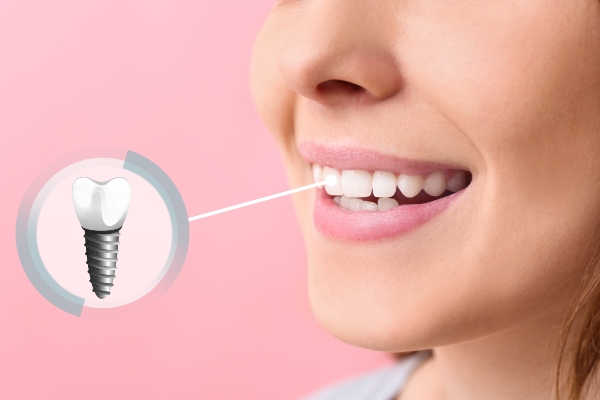A Dentist Explains the Importance of Periodontics

Periodontics is the diagnosis and treatment of gum disease. People often experience gum disease as a result of poor diet and oral care that allows bacteria to flourish on the gums and under the gums around the teeth. Diagnosis and effective treatment are important because a gum problem endangers teeth and more. Untreated mouth infections can lead to increasingly serious health problems over time, so understanding periodontal concerns is a valuable resource for preventing and curing certain dental health issues.
What does periodontics cover?
This dental specialty focuses on the gums and the bones in the mouth. When focusing on periodontal health, a dentist or dental hygenist generally examines the gums for signs of irritation, illness, and damage from injuries, incorrect flossing, or an underlying health condition.
What is gum disease?
Gum disease covers more than one condition that dentists encounter in their work. Bacteria that create plaque get in the gums and cause inflammation, known as gingivitis. Periodontal disease is what happens when gum disease goes untreated or is treated incorrectly.
What are the risks?
Periodontics is concerned with preventing and reversing the dangers of gum disease. While many cases of gum disease are simply uncomfortable, serious health problems can emerge over time. As bacteria attacks teeth and gum tissue, the patient may end up losing one or more teeth. Missing teeth can cause bone loss in that part of the jaw. Infections can spread too.
The bacteria that cause gum disease can migrate into the bloodstream and cause additional health problems. Research has linked this bacteria to rheumatoid arthritis, heart disease, respiratory illnesses, and problems with regulating blood sugar. Anyone with diabetes is at an elevated risk from gum disease.
How is gum disease treated?
A dentist may conduct mouth exams and review medical records to diagnose a patient's condition. Gum problems may be treated surgically or nonsurgically. Root planing and scaling are common treatment procedures. Scaling removes tartar and bacteria from the gums. Planing involves smoothing out the root and clearing out and bacteria to help the affected tooth and gum tissue heal.
A patient may be prescribed medication in addition to, or instead of one of those cleaning procedures. The dentist may prescribe antibiotics as well. A patient may take medicine orally or apply medicine to trays that go over the teeth and deliver medicine directly to the patient's gums.
Several surgical options exist as well. Flap surgery, skin tissue grafts, bone grafts, and tissue stimulation or regeneration could be used to repair the soft tissues or rebuild bone. It is possible to regrow lost bone using tissue stimulation and regeneration techniques.
Gum disease cannot be ignored
Periodontics is an important discipline for patients experiencing or at risk of advanced gum disease. Prevention, through good oral hygiene, is important, but regular checkups are key to timely gum disease treatment. Untreated gum disease can lead to tooth loss, bone loss, and serious injury.
Request an appointment here: https://www.millarfamilydentistry.com or call Millar Family Dentistry at (817) 885-5214 for an appointment in our Weatherford office.
Check out what others are saying about our dental services on Yelp: Periodontics in Weatherford, TX.
Recent Posts
Dental patients who are planning a visit to an implant dentist may be unfamiliar with the details regarding implants. It is crucial to learn as much information as possible before scheduling an appointment for this surgical procedure.A dental implant is a common permanent tooth replacement option that can be highly beneficial to a patient’s health…
As a provider of implant dentistry, we provide patients throughout the area with the ability to regain the appearance and functionality of their smile. Losing teeth can be ridiculously challenging. Most people never realize how important their teeth are to daily life until they lose one or several. All of a sudden, smiling and speaking…
Dental implant surgery is one of the most reliable and long-lasting ways to replace missing teeth. However, since this surgery involves inserting an artificial tooth root into the jawbone, it almost always causes some amount of pain. Before undergoing this surgery, many dental patients are worried about the level of pain they may experience afterward…
The dental implant process is lengthy and intricate. Therefore, patients must receive a thorough examination before embarking on the dental implant process. The dentist will check for abnormalities, sufficient amounts of healthy gum tissue and jawbone, and specific medical or lifestyle concerns. Fortunately, if any of these issues are present, some services can improve the…


